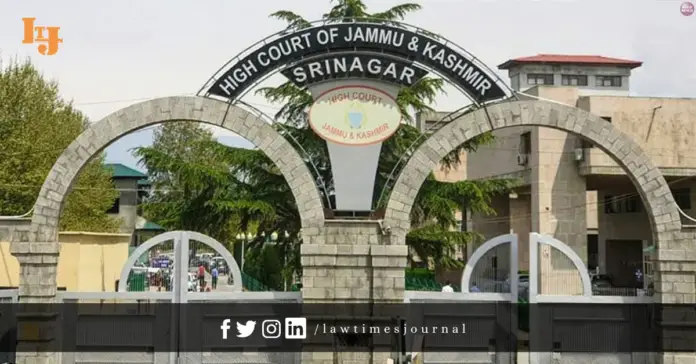
Recently, the Srinagar Court voiced its views against registering government officials without their permission while in office and carrying out their duties, claiming that the same could constitute a gross breach of constitutional rights and threaten leaks of sensitive public documents.
Munsiff Judge Shabir Ahmad Malik made specific observations on the topic when preventing the release of any insulting and defamatory statements/contents/news stories against a government minister, Syed Althaf Ahmed (Syed Altaf Ahmad vs Straight Line News (TSL) and others), by a media channel, Straight Line News.
“No doubt the defendant had his concerns and may be his concerns or grievances were genuine by recording a public servant inside his office where there may be other confidential records/material is not what the defendant should have done. Recording someone on a crowded place is not synonymous with recording someone inside his office while he is discharging his official duties” the Court noted.
The Court also held the opinion that it is not something that should be encouraged to circumvent the legislation to pursue justice on social media. The order reads, in this regard:
“We must not overlook that we live in a welfare society and that a welfare society is regulated by laws and regulations, there are guidelines for victims as well as convicted, and a proper process is given for redressing complaints and voicing concerns before the government-established authorities. Instead of contacting lawful authorities, one should not circumvent the law and opt for social media. Instead of civil authority, pursuing retribution from social media is something that can not be encouraged or opted for. Everyone has inherent right to share his or her opinions but the same cannot be an exercise at the expense of someone’s right to privacy and that too when his views outrange someone’s integrity and honor. The right to privacy is not unconditional, nor is the right to freedom of expression and voice, all of which are subject to fair limitations and can be limited in compliance with the legislation.
Syed Althaf Ahmed’s complaint argued that the media outlet had come to his office to provoke him and demonstrate his portrait, that Straight Line News secretly filmed the segment, edited to show him in a negative light and posted on social media.
Without ascertaining the true facts of the case, the defendants posted the video to their web portals as well as Facebook/social media. In contrast, the online video drew adverse responses from social media users who watched the video, the Court was advised.
The Judge agreed that some caution had been exerted by the reporter and even sought to include some statistics on city facilities and complaints cells.
However, the Court added that it is a gross breach of constitutional rights, in particular the fundamental right to privacy under Article 21 of the Constitution, to film a video without permission or consent and to post it on social media, where a person can be exposed to abuses and threats and which can have a significant effect on his life, liberty, honor, integrity, and dignity.
The right of the petitioner to privacy granted under Article 21 of the Indian Constitution cannot be limited by illegally filming a video without his consent or consent inside a government office while he was performing his duties. The defendants have a right to freedom of speech and expression. However, the same cannot be exercised by breaching the privacy of another and tarnishing his image.’
The Judge indicated that the ideal solution would be to voice such complaints before the lawful authority or a court if there were any concerns that needed redress. Magistrate Malik said,
“It’s apt to mention here that allowing these acts of recording a public servant inside the offices is something that should not be permitted or encouraged as the same may result in leaking/publishing of some confidential public records.”
The Court also noted that Straight Line News had not released the entire video recording in the news article. In this respect, the Court of Justice noted that,
“A substantial part of the alleged original video was not published/shown in the said news report after watching both the videos that the entire video was not published in the news report.”
The Court has pointed out that in framing and molding society’s view, the media plays a critical role. The Judge observed that if a defendant is found guilty by the media or the public, there is no effect of a conviction in a court of law or a potential acquittal or exoneration.
As such, the appellant was given temporary relief by arguing that the Court is bound to see who faces the greater suffering that cannot be reversed and who will suffer irreparable harm if relief is not granted.
The balance of convenience was in favor of the claimant, he had made a prima facie argument and if the relief was not given, irreparable harm would be caused to him, the Court said. The media outlet was asked to suspend all links to videos that had already been released online until further orders were placed. The Judge has, however, explained that the suspects are entitled to post any news or article with proper consideration and caution after deciding the evidence. It is expected that the matter will next be taken up on 11 February.








